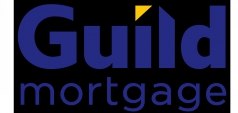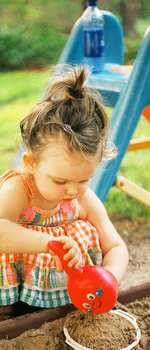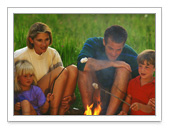
|
Follow Me On: |
 |
Derek Egeberg - NMLS#180899 Branch Manager, Loan Officer Guild Mortgage (NMLS 3274) Phone: (928) 247-9089 License: BK 0915245 derek.egeberg@guildmortgage.net www.guildyuma.com |
 | ||
| ||||
June 2009

|
Happy Campers: The Vacation You Can Take Again and Again... For the Cost of Just One Extravagant Trip!
Camping can be a relaxing vacation for an entire family, high school seniors after graduation, or just a group of friends who want to get away. It provides the opportunity to get away from the hectic pace of everyday life, to rise and sleep with the sun rather than a clock, and to enjoy the company of friends and family. And it's cost-effective. Not only will you save money on your accommodations ($20 a night for a campsite versus $120 or more for a hotel), but you'll also save by packing your own food rather than eating out. Better still, it's the type of activity that you can enjoy in your own backyard, a few miles down the road, or halfway across the country. Whether you're planning a short getaway or a long vacation, consider packing up your camping supplies and relaxing with nature. The information below can help you plan for and enjoy your cost-effective camping vacation. Reserve Your Spot Camping has always been popular, but interest has increased over the last few years as the economy has slowed down and families have looked for an inexpensive way to travel and spend time together. That means campgrounds across the country are booking up faster than many people may expect. If you're planning a camping trip this summer–whether it's down the road or across state lines–take a few moments now to plan the trip and reserve your campsite. There are a number of online resources for specific campgrounds and state parks, but you can also reserve spots at campsites across the country by visiting the following websites: These websites allow you to search for the perfect spot–whether you're looking to camp in a tent, an RV, or a lodge. You can even search for campgrounds near a specific park or one that you can bring your boat to. So, if you're planning a trip across country, you can map out your route and reserve your campsites along the way! And, if you're planning on getting away more than once, you may want to consider joining a camping club for additional information and discounts: Pack and Prepare Before you head out for the wide-open spaces, make sure you have everything you need...and that it's all in working order. The following checklist can help you with the process of preparing: Tent or camper–Start by putting up your tent or camper in your yard. Make sure you have all the pieces and that the poles and zippers all work. Also check for any holes. If you find holes or thin spots, purchase a tent (or canvas) repair kit...and make sure you pack it with your supplies in case new holes develop later. You may also want to waterproof the canvas and seams with a sealer from your local camping or hardware store. Finally, if you find any moldy spots, clean them thoroughly with soap (or a natural cleaner) and a brush. Then, make sure everything is completely dry before packing it up. Aqua–One of the first items on your list should be drinking water. If you typically purchase jugs of purified water, make sure you have plenty on hand. Or, if you prefer to purify your own water with a water filter, make sure it functions properly and that you have an extra filter and batteries for it. Stove and lantern–Your camp stove and lantern may have rusted or developed a problem since you last used them. So make sure you clean them up and try them out before you head out. Don't forget to follow any owner instructions for lubricating parts. And, make sure you have fresh new fuel on hand for this camping season. Sun and bug protection–Make sure you have plenty of sunscreen (SPF 30+) and insect repellent. Pocketknife–Not everyone carries a pocketknife, but it's a great tool for camping. Whether you need to cut some rope, open a can, or tighten a few loose screws, a pocketknife can be a handy little helper. You may even want to look at purchasing a multi-tool that features needle-nose pliers along with multiple knife and tool blades. Flashlight–Don't assume that your flashlight still works. Try it out now...and pack extra batteries and bulbs so you can be sure it'll work when you need it. Otherwise, you may have a long, dark walk to the restroom in the middle of the night. Air mattresses–You don't have to sleep on a hard surface or the ground to take in the joys of nature. So if you use inflatable air mattresses, check them for leaks. It may also be a good idea to pack a patch kit with them, just in case they spring a leak later on. Of course, you can also do without the air and simply pack foam mats. Either way, you'll want to double-check that they're clean (mold-free) and ready to use. Clothes–You don't need to pack everything you own. You just need to pack items that you can combine into multiple outfits, depending on the weather conditions. For example, a couple of shirts and pairs of shorts can combine with a pair of pants, a sweater, and a jacket or rain coat to create a wardrobe for a week or more. Remember to dress in layers so you can add and remove clothes as the weather changes. And, don't forget to pack extra underwear and socks to stay comfy and dry. Finally, a swimsuit is always a good idea. Wash and dry–You can get away with fewer clothes if you plan on washing while you're gone. All you need is a medium-to-large bucket, a small container of laundry soap, a clothesline, and some clothespins. These items take up very little room, and they allow you to really lighten your suitcase load. Broom and dust pan–Whether you're in a camper or a tent, dirt has a way of following you inside. To help keep the place clean, bring a broom (or a travel-broom) and dustpan with you. Utensils and extras–Don't forget to pack some of the comforts of home, like utensils. Make a list of items you regularly use and make sure they're packed. For example, you'll probably want to bring along plates/bowls, camping glasses/cups, a tablecloth, spoons and forks (along with a bucket and dish soap so you don't have to dispose of them after each meal), a spatula and a pair of tongs, hand soap, a couple of towels and maybe some hand sanitizer. TIP: If you need to purchase any of these items, shop in the clearance section of your favorite store or even at your local dollar store. You can usually find great summer deals on everything from foam mattress pads to flashlights to tent pegs. Safety First You never know when you're going to need a small bandage, some antiseptic, or even a pair of tweezers. So make sure a well-stocked first-aid kit is on your checklist. Here are some of the things you'll want to consider packing in it:
TIP: You should also pack a set of basic first-aid instructions with your kit, so you'll have the tips and know-how to address medical issues you may face. Selecting (and Laying Out) Your Campsite When picking the perfect spot for your camper or tent, consider the following tips: Water and restrooms–Chances are, you'll be walking to the water faucet and restrooms throughout the day (and sometimes in the middle of the night). So make sure you know where they're located and try to situate your campsite so that you have a short, easy walk to them. Nothing's worse than walking all the way across the campground or across rough, difficult terrain multiple times a day. High and dry–Make sure you know where the low-spots are...and avoid them when setting up your equipment. Otherwise, you may wake up to water in your tent or a large puddle surrounding your camper when it rains. You'll also be more comfortable if you find a relatively flat spot, so you can avoid the awful "sleeping-bag slide" towards the bottom of your tent or camper. Cooking and cleaning–Don't just setup and settle in...make a layout plan for your campsite. Where will you cook...is it far enough away from dry leaves and twigs so your fire won't get out of control? Where will you eat...is it close to the campfire/stove? Where will you hang clothes to dry...is it out of the way enough so that people won't accidently walk into the clothesline at dusk? Thinking through the "workflow" of your campsite before you set up can help alleviate stress and frustration later on. Fun in the...shade–All too often we associate camping fun with the sun. But there may come a time when you just want to relax in the shade. In addition, you may want to keep your tent or camper cool. So look for a spot with a few shade trees...and try to determine where the shade will fall at key times–like noon and early evening–so you know where to set up your chairs and other equipment. Garbage detail–A clean campsite is a happy campsite. After all, you don't want to find yourself overrun with insects and small critters simply because you didn't dispose of last night's supper. So bring plenty of garbage bags, keep them sealed after use, and haul them to the garbage can at regular times throughout the day. Cooking at your campsite is a time for friends and family to gather around and enjoy each other's company. But it can also be frustrating if everyone's hungry and the food is taking a long time to prepare. The following tips can help you make your dining experience more enjoyable at the campsite: Make a menu–Plan out your meals beforehand...that way you'll be able to easily shop for supplies as well as prepare your meals once you're on the campsite. Prepare food at home–Before you leave home, cut up a variety of snacks, such as cheese, meats, and vegetables. In addition, consider cooking and then freezing/storing some meals–such as soup or chili–so you can quickly reheat it over the flame without all the prep time. Pack easy-to-cook meals–You may want to make one or two big meals while you're camping, but for the most part, rely on some of the old stand-bys: hot dogs, sandwich meat, and maybe even pre-cooked hamburgers and sausage. That way, you'll always have a safe, easy meal on hand when hunger strikes. Take care of your equipment–Make sure you bring cookware that's designed for the rigors of outdoor cooking. That means having fireproof cooking equipment, extra-long tongs, rugged potholders, long-handled wooden spoons and so on. And, after you cook, remember to clean your equipment thoroughly so it's ready to use for the next meal. TIP: You can grill more than just hamburgers and hotdogs at the campsite. Corn on the cob, potatoes and even pizza are great when grilled. Also, be sure to check out next month's "Your Kitchen" article on foods you may never have thought to grill. Then try them out the next time you head to the outdoors. Final Thoughts To make sure you–and your campground neighbors–enjoy your outdoor adventures, follow these final thoughts on campground etiquette:
By following these tips, you'll be able to enjoy the outdoors all summer long...whether you're vacationing in your own backyard or halfway around the country. Happy camping! | ||||||||||||||||||||||||||||||
LO# 0915245 BK# 0904081 Corp NMLS# 3113 Corp CA# 4170013 CA-DOC180899 Licensed by the Department of Business Oversight under the California Residential Mortgage Lending Act. You are receiving a complimentary subscription to YOU Magazine as a result of your ongoing business relationship with Derek Egeberg - NMLS#180899. While beneficial to a wide audience, this information is also commercial in nature and it may contain advertising materials. INVITE A FRIEND to receive YOU Magazine. Please feel free to invite your friends and colleagues to subscribe. SUBSCRIBE to YOU Magazine. If you received this message from a friend, you can subscribe online. UNSUBSCRIBE: If you would like to stop receiving emails from Derek Egeberg - NMLS#180899, you can easily unsubscribe. Guild Mortgage (NMLS 3274) |
1375 W. 16th St., Suite B Yuma, AZ 85364 Powered by Platinum Marketing © Copyright 2024. Vantage Production, LLC. | |||||||||


